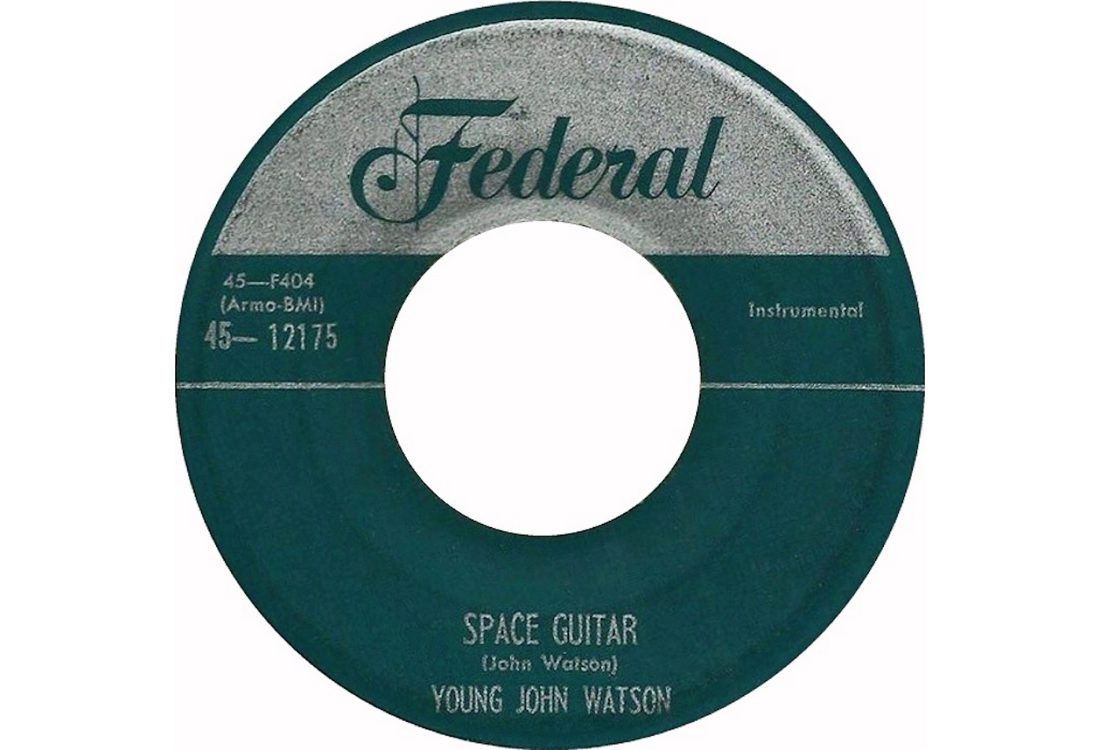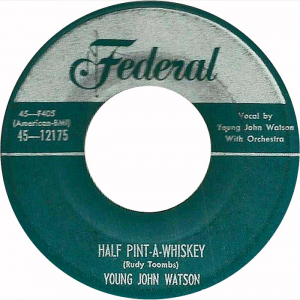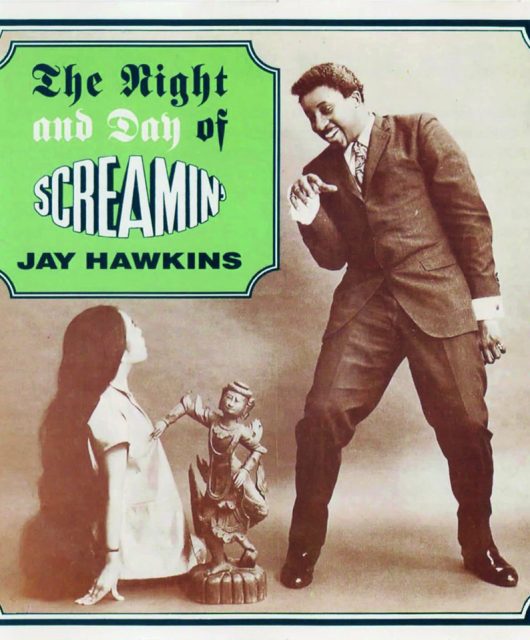Johnny ‘Guitar’ Watson is best remembered as a 70s funk artist, but back in the 50s, as a teenager called Young John Watson, he cut one of the most extraordinary guitar instrumentals ever…
Words by Douglas McPherson
Space Guitar by Young John Watson – or Johnny ‘Guitar’ Watson as he later became known – is one of the most astounding instrumentals of the 1950s for at least two reasons. First, few have heard it. It was never a hit and wasn’t mentioned in many obituaries of Watson, who died in 1996, famous for 70s funk hits such as Gangster Of Love. Second, it’s hard to believe it was recorded so early in the 50s.
The track is seldom mentioned in debates about the first rock’n’roll record, and it’s true more common contenders, such as Jackie Brenston And His Delta Cats’ Rocket 88, came out earlier. But, listened to today, it’s incredible that Space Guitar was laid down 70 years ago in February 1954, several months before the release of Bill Haley’s Rock Around The Clock and Elvis’ That’s All Right.
Ahead Of His Time
Bursting from the speakers in a blast of reverb, it sounds like something Link Wray might have cut at the end of the 50s, that Dick Dale may have recorded in the surf boom of the early 60s, or a psychobilly band could have spewed out in the 80s. The track was so far ahead of its time that instead of rating it out of 100, Billboard magazine gave what it called this “most unusual wax” a score of “??”.
Watson was born in Houston on 3 February 1935. His father was a pianist and taught him to play piano. But he also had a grandfather who was a preacher and played guitar in church. Grandpa gave the 11-year-old Watson a guitar on the condition that he didn’t play ‘the Devil’s music’ – a condition Johnny broke the first time he touched the strings.
After his parents’ separated when he was 15, Watson moved to L.A. with his mother, where he began winning talent contests. Influenced by T-Bone Walker and Clarence ‘Gatemouth’ Brown, he began playing West Coast juke joints and made a name for himself with his flamboyant stagewear and a playing style so aggressive that he frequently broke his guitar strings during a show.
Paint-Stripping Licks
While still in his teens, Watson signed with Federal, a subsidiary of King Records, run by record producer Ralph Bass. Bass had produced T-Bone Walker’s best-known song, Call It Stormy Monday, and the Dominoes’ classic Sixty-Minute Man, and would go on to helm James Brown’s million-selling debut Please, Please, Please in 1956.
Bass cut some fine blues singles with Watson in 1953, including the self-penned Highway 60 and I Got Eyes, but none gained much attention. They also tried the New Orleans-style Motor Head Baby, which borrowed its melody from Lloyd Price’s Lawdy Miss Clawdy but brought them no luck. Session musicians provided the guitar on those discs and it was only on Space Guitar that Watson committed his own unique style to tape.
The stop-time background music was not unusual for an R&B record of the era, but the paint-stripping licks that Watson sprayed allover it sounded like nothing recorded before – and like nothing that Watson would lay down again.
Out Of This World
Space Guitar was released on the flipside of the conventional blues song Half Pint-A-Whiskey, but there was no formal A- or B-side. Although Billboard gave the latter a favourable review, neither recording made the charts.
It was only decades later that Space Guitar was identified as a precursor to, and perhaps a direct influence on, Bo Diddley and Jimi Hendrix. Watson himself had no doubt, saying: “Those things Jimi Hendrix was doing, I started that sh*t.”
Disillusioned by a lack of traction at Federal, Watson jumped ship to Modern and changed his name to Johnny ‘Guitar’ Watson, inspired by the Joan Crawford western Johnny Guitar. Watson’s chart career began in 1955 with Those Lonely, Lonely Nights, which reached No.10 on the US R&B chart and exhibited none of the pyrotechnics that distinguished Space Guitar. In 1962, he scored one of his biggest hits with the lush, string-coated ballad Cuttin’ In, and in the late 60s enjoyed two hit duets with Larry Williams, on Mercy, Mercy, Mercy and Nobody.
But it was in the 70s that he came into his own as a funk artist. Swapping his pompadour for wide-brimmed hats, wide-lapelled suits and shades, he surrounded his sultry guitar licks with squelchy organ sounds on Barry White-influenced tracks such as I Don’t Want To Be A Lone Ranger and Superman Lover.
Gangster Of Love
His biggest hit, A Real Mother For Ya made No.41 on the US Pop chart, No.5 on the US R&B parade and No.44 in the UK. His signature song, meanwhile, was a funky remake of Gangster Of Love that he had originally cut as a stop-time talking blues in the 50s. Asked if his fast-talking 1980 song Telephone Bill anticipated rap, Watson replied with an emphatic, “I damn well invented it!”
During the 80s, Watson faded from the scene, but returned to prominence with the Grammy-nominated 1994 album Bow Wow, just two years before his death, at the age of 61.
Etta James, Steve Miller and Stevie Ray Vaughan all acknowledged Watson as a major influence. Frank Zappa cited Watson’s 1956 cut Three Hours Past Midnight as the reason that he began playing guitar, while Bobby Womack called him, “the most dangerous gunslinger out there.”
As a 70s funkster, Watson made his mark and got the recognition he deserved. But while mostly remembered for his work in that era, we shouldn’t forget the contribution he made to early rock’n’roll with Space Guitar, on which he played like the Devil himself. His grandpa must have clutched his Bible in horror when he heard it…
Subscribe to Vintage Rock here







